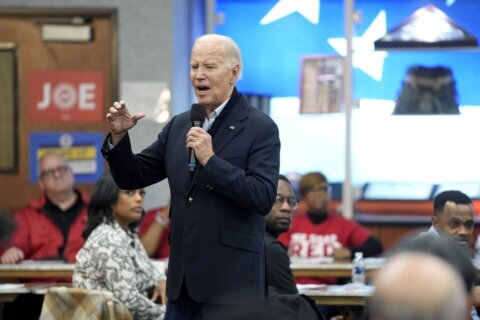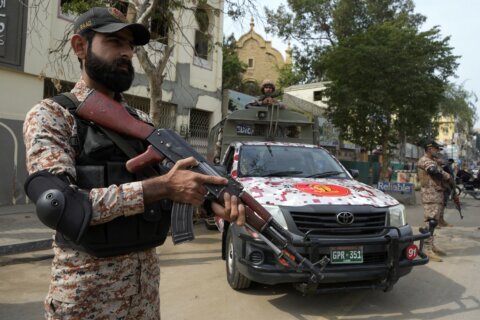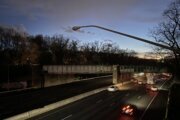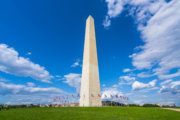BEIRUT (AP) — The Lebanese government invited on Monday a U.S. envoy mediating between Lebanon and Israel over their disputed maritime border to return to Beirut as soon as possible to work out an agreement amid rising tensions along the border.
The invitation for Amos Hochstein, a senior adviser for energy security at the U.S. State Department, came a day after Israel set up a gas rig at its designated location at the Karish field, which Israel says is part of its U.N.-recognized exclusive economic zone. Lebanon insists it is in a disputed area.
The U.S.-mediated indirect talks between Lebanon and Israel have been stalled for months amid disagreement within Lebanon over how big the disputed area is.
Lebanon is home to the heavily armed militant Hezbollah group, which is backed by Iran and has fought several wars with Israel. Hezbollah has also warned it would use its weapons to protect Lebanon’s economic rights.
On Sunday, Lebanon warned Israel not to start drilling in the Karish field and President Michel Aoun said maritime border negotiations have not ended, adding that any move by Israel will be considered “a provocation and hostile act.”
Aoun’s office said Lebanon formally notified the United Nations in February that Karish is part of the disputed area and that the U.N. Security Council should prevent Israel from drilling there in order “to avoid steps that could form a threat to international peace and security.”
The Israeli energy ministry confirmed that the oil rig arrived Sunday, after a five-week sail from Singapore. The ministry said that the Karish field is projected to provide half of Israel’s demand for natural gas and will allow greater exports to neighboring Egypt and Jordan.
Israel’s Energy Minister Karine Elharrar said in an interview on Monday with Army Radio that the field was “entirely in undisputed territory” and called on Lebanon to return to indirect negotiations.
“It’s not even (above) the southern line that Lebanon submitted to the United Nations. Even according to the United Nations, it’s not in Lebanon,” she said. Elharrar added that the Israeli defense ministry is taking the necessary steps to protect the rig, without elaborating further.
Elharrar also told the 103FM radio station that the Lebanese allegations were “very far from reality” and that “all the relevant forces are involved, and I recommend not trying to surprise Israel.” But she said the likelihood of conflict was small.
Satellite images on Sunday from Planet Labs PBC analyzed by The Associated Press showed the Marshall Islands-flagged Energean Power floating production storage and offloading vessel in the Karish field area of the Mediterranean Sea. Nearby was the Bahamas-flagged platform Arendal Spirit. Ship tracking data from the two vessels analyzed by the AP also confirmed the vessels’ presence in the area.
On Monday, the office of Lebanon’s caretaker Prime Minister Najib Mikati said that he has agreed with Aoun to invite Hochstein to return to Beirut for talks on the border dispute and “to work on concluding them as soon as possible in order to prevent any escalation that will not serve the stability that the region is currently witnessing.”
Israel and Lebanon, which have been officially at war since Israel’s creation in 1948, both claim some 860 square kilometers (330 square miles) of the Mediterranean Sea. Lebanon hopes to unleash offshore oil and gas production as it grapples with an economic crisis.
Last year, the Lebanese delegation — a mix of army generals and professionals — offered a new map that pushes for an additional 1,430 square kilometers (550 square miles).
An official at the office of Israel’s Prime Minister Naftali Bennett said “Karish is a natural gas reservoir within Israel’s U.N.-recognized exclusive economic zone.” The official, who spoke on condition of anonymity in line with regulations, said that the Lebanese themselves had recognized it as Israeli waters in the past.
A Lebanese legal expert said if Israel begins exploration work in Karish, the risk of conflict between the neighboring countries will increase, adding that Hezbollah’s precision-guided missiles can easily hit the oil rig.
“Their missiles are long-range and they are more precise in hitting these targets that are not mobile like ships and fighter jets,” said Paul Morcos, founder and owner of Justicia Consulting Law firm in Beirut.
The Israeli military and ministry of defense declined to comment on whether they were taking any specific measures to protect Karish.
___
Associated Press writer Ilan Ben Zion in Jerusalem and Jon Gambrell in Dubai, United Arab Emirates, contributed reporting.
Copyright © 2024 The Associated Press. All rights reserved. This material may not be published, broadcast, written or redistributed.







